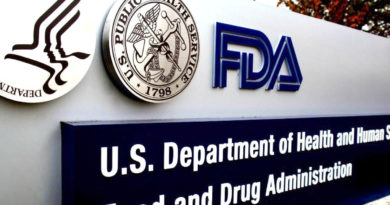Anti vax movement: Russian trolls fueled anti-vaccination debate in U.S. by spreading misinformation on Twitter, study finds

Russian Twitter trolls have attempted to fuel the anti-vaccination debate in the U.S., posting about the issue far more than the average Twitter user last year, a study out of George Washington University has found. The “sophisticated” bots shared opinions from both sides of the anti-vaxxer debate, which took the U.S. by storm and prompted tech companies to crack down on the spread of misinformation surrounding vaccinations.
In the study, professor David Broniatowski and his colleagues say the Russian trolls’ efforts mimic those used in the past. Such trolls ramp up controversial issues in the U.S. by inflating different viewpoints, the study says.
The U.S. is in the midst of the worst measles outbreak in the country in 25 years. Health officials say misinformation and anti-vax messages have led more people to avoid vaccination, allowing the disease to spread.
“These outbreaks are due to the anti-vaccine movement,” Dr. Anthony Fauci, director of the National Institute of Allergy and Infectious Disease, told CBSN AM in January, when the outbreaks were beginning to gain steam.
He stressed that the vaccine has been scientifically proven over many years to be safe and effective in preventing measles. However, some parents still refuse to vaccinate their kids.
One of the main reasons anti-vaxxers refuse vaccinations is that they incorrectly believe they cause autism. As part of an effort by several large tech companies to cut out the spread of vaccine misinformation, Amazon began removing books that promote supposed “cures” for autism.
Facebook also said it would crack down on the spread of vaccine misinformation by de-prioritizing medical myths across the platform, taking action against verifiable vaccine hoaxes, the company said. Misinformation will now appear less frequently in News Feeds, both public and private pages and groups, search predictions and recommendations, according to Facebook.
According to Axios, however, misinformation about vaccines is not the only threat, as Russia is focusing on spreading misinformation around health care issues ahead of the 2020 election.
Not only did Russia fuel the anti-vaccination debate, they have also spewed unverified information about 5G wireless technology. RT, a U.S.-based Russia-backed TV network, reported that new 5G technology was linked to cancer, autism, Alzheimer’s and other health issues, The New York Times reports. This had a real-world effect, with smaller blogs and websites picking up RT’s false stories and sharing them as fact, the Times said.
In February 2018, special counsel Robert Mueller charged 13 Russian nationals and three Russian entities with crimes related to a campaign to sow disinformation and division in the U.S. in the run-up to the 2016 election. A so-called “troll factory” in St. Petersburg set up to influence U.S. voters was to blame, according to the indictment.
The trolls were paid to ridicule Hillary Clinton online and fan the flames of divisive issues in the U.S. While evidence suggested the troll factory’s American operations slowed down between 2016 and 2018, Broniatowski’s study suggests trolls are alive and well in Russia — and now they’re pitting Americans against each other over issues of health.
*** This article has been archived for your research. The original version from CBS News can be found here ***


